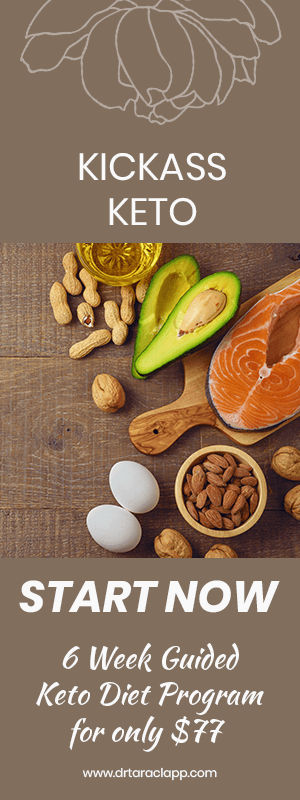
10 Reasons Why You Can’t Shift Stubborn Belly Fat
A little bit of abdominal fat isn’t such a bad thing. It helps to protect your vital organs, after all!
It’s a fine balancing act though as storing too much fat around your abdomen can be dangerous and has been linked to some pretty nasty health problems. We’re talking heart disease, diabetes and even cancer, to name just a few of the things that it may set the scene for. Scary, right?
Some of the culprits are fairly obvious, especially if you’re eating a lot of processed foods and not doing much exercise. There can be some surprising reasons behind belly fat though and these can come into play even if you think you’re living a healthy lifestyle. Here are some of the factors that can make you more likely to store fat in your abdominal area.
Factor #1 – You’re Eating Too Much Sugar and Trans Fats
If you eat a diet that contains a lot of sugar, you’ll probably be struggling to shift belly fat. According to studies, there is a definite link between the two. This can be largely due to the fructose content in processed foods.
Trans fats are another big no-no if you want to avoid belly fat. These are pretty much the worst type of fat you can eat as they promote inflammation and according to studies on animals, they also encourage more fat to be stored on and around your abdomen.
Factor #2 – Your Alcohol Intake

You’ve no doubt heard of a “beer belly” and this is something that can affect women too. Depending on how much you drink, it could be the culprit for stubborn belly fat. Some studies have shown that alcohol can make it harder to burn fat by slowing down metabolism for up to 6 hours after consuming it. It also makes it more likely that the extra calories it brings to the party are stored on and around the abdomen.
Factor #3 – You’re Eating a Low Protein Diet
If you want to stay trim, it’s really important to get enough protein in your diet. Protein helps you to feel more satiated and can mean that you consume less calories. People who eat a lot of protein tend to have very little in the way of belly fat.
Low protein diets are more likely to result in belly fat, according to studies.
Factor #4 – You Don’t Eat Enough Fiber
If your diet is low in fiber, you can be more likely to store belly fat. Observational studies show that getting plenty of soluble fiber reduces the chances of this. In one particular study that involved over 1,100 men and women, every extra 10g of soluble fiber led to a 32% decrease in how much belly fat was stored. This has a lot to do with the fact that low fiber increases your appetite and belly fat.
Factor #5 – You’re Scared of Eating Fat

Fat has had a bad rep and this can put you off eating it. While it’s true that you don’t need a lot of the unhealthier fats, good fats can help you to lose weight and keep belly fat to a minimum.
Monounsaturated fats are one of the good fats and are important for satiety. They’ll help you to feel fuller for longer so you’re less likely to make unhealthy food choices that increase your potential for storing belly fat.
Sources of monounsaturated fat include: avocados, almonds, cashews and peanuts. cooking oils made from plants or seeds like canola, olive, peanut, soybean, rice bran, sesame and sunflower oils.
Factor #6 – You Have Too Much “Bad” Bacteria in Your Gut
Gut bacteria play several important roles in your health, such as communicating with your immune system and producing certain vitamins. Your gut bacteria can also affect how different foods are digested and produce chemicals that help make you feel full. As a result, they can affect your weight.
Two groups of beneficial bacteria are dominant in the human gut, the Bacteroidetes and the Firmicutes. According to research, an imbalance of gut bacteria can have an effect on your weight and how much fat you store on your abdomen.
Obese patients have a lesser diversity and richness in the bacterial component of gut microbiota than normal-weight subjects. Obese individuals have shown to present increased Firmicutes and decreased Bacteroidetes in feces, regardless of diet intake.
Firmicutes are instrumental in increasing fat absorption. An abundance of Firmicutes in the gut is influenced by diet: people eating normally had more Firmicutes bacteria compared to people that were denied food for several days.
Factor #7 – You’re Stressed

Under a lot of stress? It could be one of the reasons why you’re storing belly fat. The stress hormone, cortisol, can lead to weight gain, especially in the abdominal area. Rather than going on your body across the board, cortisol often encourages extra calories to be stored as abdominal fat.
Factor #8 – You Don’t Sleep Well
If you spend a lot of time tossing and turning in the average night, there’s a much higher chance that you’ll store belly fat. Poor sleep is linked to weight gain in general and according to some studies, it also predisposes you to abdominal weight gain in particular.
A large-scale study of more than 68,000 women found that those who were sleeping less than 5 hours per night gained a lot more weight compared to those who slept 7 hours or more.
Factor #9 – You Don’t Get Enough Magnesium
Getting enough magnesium in your diet can lower your blood sugar and insulin levels. That’s not too surprising when you consider that this mighty mineral is involved in over 300 chemical reactions in your body! Some of these reactions have an effect on your body’s ability to burn fat so it can have an indirect impact on your weight.
Factor #10 – Your Exercise Isn’t Intense Enough

Not all exercise is equal when it comes to busting belly fat and keeping it off, especially if your workouts aren’t intense enough. High Intensity Interval Training (HIIT) is a good option but anything that involves reasonably intense exercise several times per week should help.
References:
Is alcohol consumption a risk factor for weight gain and obesity? Crit Rev Clin Lab Sci. 2005;42(3):197-227. https://www.ncbi.nlm.nih.gov/pubmed/16047538
Quality protein intake is inversely related with abdominal fat. Nutr Metab (Lond). 2012 Jan 27;9(1):5. doi: 10.1186/1743-7075-9-5. https://www.ncbi.nlm.nih.gov/pubmed/22284338
Microbial ecology: human gut microbes associated with obesity. Nature. 2006 Dec 21;444(7122):1022-3. https://www.ncbi.nlm.nih.gov/pubmed/17183309
Clinical Nutrition Experimental Volume 20 August 2018, Pages 60-64 https://www.sciencedirect.com/science/article/pii/S2352939318300162#bib25
Association between reduced sleep and weight gain in women. Am J Epidemiol. 2006 Nov 15;164(10):947-54. Epub 2006 Aug 16. https://www.ncbi.nlm.nih.gov/pubmed/16914506
In Health & Happiness
Dr. Tara Clapp, ND

Dr. Tara Clapp, ND
Naturopathic Doctor Focusing on Anti-aging and Hormone Optimization
Dr. Tara Clapp, ND is a Board-certified Naturopathic Doctor and leading authority on Anti-Aging & Bio-Identical Hormones. Dr. Clapp, ND has taken numerous courses to advance her knowledge and has received certifications in Intravenous Nutrient Therapy, Mesotherapy & Injection Therapy for Anti-Aging & Pain Management, as well as First Line Therapy Weight Management.
Dr. Tara Clapp, ND uses specialized, leading-edge laboratory testing for better diagnostics & health. Dr. Tara Clapp, ND has special interests in anti-aging, bio-identical hormone therapy, food and nutrition, metabolic and hormone imbalances and digestive disorders.
Being a naturopathic doctor has proven to be an especially rewarding experience to Dr. Tara Clapp, ND as it allows her to take part in people’s transformation and realization of their health potential. Consequently, Dr. Tara Clapp, ND continually updates her skills through new courses and conferences, and uses this information to better her clients.
Dr. Tara Clapp, ND is a dedicated and caring physician, taking personal interest in her clients’ health and life.
Dr. Tara Clapp, ND has a passion for self-development programs that push her beyond regular physical and mental performance. Dr. Tara Clapp, ND enjoys practicing yoga and meditation, has a love of photography, and relaxes by scrapbooking and enjoying long walks with her dog.




